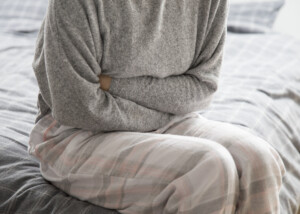
Does every person with microscopic colitis experience fatigue?
Fatigue is often included in symptom lists for microscopic colitis.
I was diagnosed with lymphocytic colitis in May 2010. I’ve read a lot of patient self-reports of their symptoms and many mention fatigue and even exhaustion.
Like most people with microscopic colitis, though, I have not experienced any fatigue.
“Fatigue is not a typical symptom of microscopic colitis, and is a much more common symptom in other diarrheal conditions such as inflammatory bowel disease [Crohn’s, ulcerative coltis] or irritable bowel syndrome,” says Alan Gingold, DO, a board certified gastroenterologist with Central Jersey Ambulatory Surgical Center.
“Fatigue in microscopic colitis is likely due to loss of sleep, as nocturnal diarrhea can be seen in microscopic colitis – whereas, it’s very unusual in IBS,” continues Dr. Gingold.
“Fatigue may also be due to the stress and anxiety that it causes, as it can significantly affect a patient’s quality of life.”
If you’ve been having fatigue, ask your doctor if it also might be due to malabsorption of vital nutrients.
Some patients have diarrhea up to 20 times a day and can lose a lot of nutrients as well as water.
A small percentage of patients have joint aches, also known as enteropathic arthralgia.
These aches, which (based on my experience) mimic the aches of premenstrual syndrome, can disrupt sleep — leading to fatigue during the day.
The joint aches that are associated with microscopic colitis are NOT due to damaged joints or worn-down cartilage, as is the case with other forms of arthritis.
The aching is transient, and I’ve even done heavy weightlifting during episodes. It’s annoying as heck but runs its course.
Researchers believe that enteropathic arthralgia is caused by the release of inflammatory chemicals (“mediators”).
Fatigue is not the same as arthralgia.
Enteropathic arthralgia translates to “joint pain/ache originating from the gut.”
Many people with microscopic colitis have only the diarrhea element, and sometimes with that they have abdominal cramps.
Other associated symptoms include weight loss, nausea, even a feverish feeling.
But for those who suffer with fatigue, can this be eliminated with intense exercise?

I’ve always worked out very hardcore, and perhaps this is why, despite having microscopic colitis, I’m not afflicted with the fatigue element.
I urge anyone who has this inflammatory bowel disease to take up strenuous, intense exercise during non-flares (when you’re free of fatigue and nausea that would interfere with working out).
You can get in a very effective workout despite having to frequently ditch what you’re doing and run to the restroom. Build up your body to be as strong as possible.
In fact, intense weight workouts subdued my diarrhea; I never had to “go” when I was at the gym — as though somehow, my body knew that nothing dare better interrupt gym time.
Do hard workouts and see if these don’t eliminate the fatigue.
Hard exercise will also help you sleep better so that you’re not fatigued the next day from sleep interrupted by overnight diarrhea.
Finally, stop stressing about microscopic colitis. It’s annoying; it can even be disruptive … BUT…it’s benign; it can’t turn into anything serious.
 Dr. Gingold attributes his success to the extra time he spends with his patients. His areas of expertise include reflux disease, Barrett’s esophagus, capsule endoscopy, chronic liver disease and inflammatory bowel disease. Dr. Alan Gingold is board certified by the American Board of Internal Medicine in Gastroenterology
Dr. Gingold attributes his success to the extra time he spends with his patients. His areas of expertise include reflux disease, Barrett’s esophagus, capsule endoscopy, chronic liver disease and inflammatory bowel disease. Dr. Alan Gingold is board certified by the American Board of Internal Medicine in Gastroenterology
 Lorra Garrick has been covering medical, fitness and cybersecurity topics for many years, having written thousands of articles for print magazines and websites, including as a ghostwriter. She’s also a former ACE-certified personal trainer.
Lorra Garrick has been covering medical, fitness and cybersecurity topics for many years, having written thousands of articles for print magazines and websites, including as a ghostwriter. She’s also a former ACE-certified personal trainer.
.









































